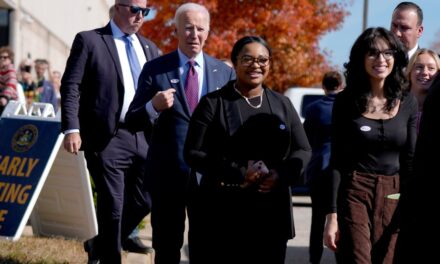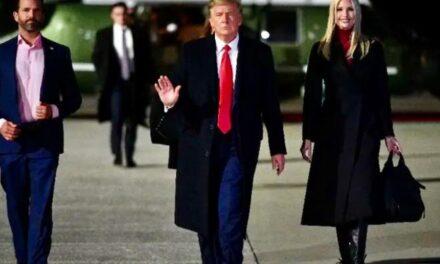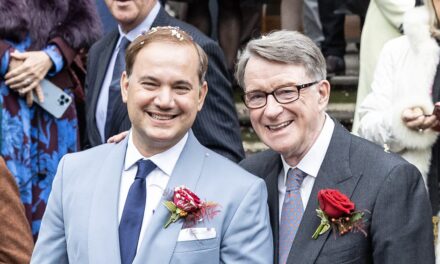A nation is just a grown-up person, complete with a body, a soul, and a full package of psychological complexities.Thomas Hobbes already laid it out 374 years ago in Leviathan: “Sovereignty is the soul, officials are the joints, the law enforcement agencies are the nerves, advisors are the memory, national unity is health, rebellion is disease, and civil war is death.”
I would add that if nations are like little people, then their leaders are, in effect, oversized states. The United States and Israel, with a combined population of 350 million, are concentrated in the bodies of two men in their late seventies—Donald Trump and Benjamin Netanyahu.
To understand their minds is to save our own.
Trump’s secret: vulnerability as strength
Throughout his career, Trump has been dismissed as someone who never built himself from scratch. “He’s not a brilliant businessman. He was just born into wealth and got millions from his father,” the US media sneered. Instead of denying it, Trump turned it into leverage. He spun the story, claiming he took a “small loan” of a million dollars from his father and transformed it into a multibillion-dollar empire.
He flipped the narrative: instead of being the rich kid handed everything on a silver spoon, he cast himself as the self-made mogul who took a moderate sum and built an international business. His supposed weakness became his success.
The ridicule of his 2016 presidential bid was unprecedented. Barack Obama, in his characteristic condescension, dismissed him, saying, “The presidency of the United States is not entertainment and not a reality show.” So Trump decided to become president—and turn the job into the most-watched reality show, with higher ratings than ever.
“You’re a loser,” his niece Mary Trump taunted him, pressing on what she assumed was a raw nerve. His father, Fred Trump, a ruthless real estate mogul, had raised him to be relentlessly competitive, sending him to military school at age 13 to “toughen him up.” Instead of breaking, Trump transformed this tough upbringing into his driving force. He became a fighter who refuses to give up, even when everyone around him assumes all is lost. He turned humiliation into power.
If you want to sum it up in one image, look no further than the most iconic moment in modern politics: moments after surviving an assassination attempt in Pennsylvania, blood still dripping down his face, Trump seized the moment to create an instant symbol of resilience—his now-famous fist-pumping “Fight. Fight. Fight.”
Trump still seeks validation from his father, even today. He craves the image of a winner as much as he craves air. He wants to return from military school with a Nobel Prize in his backpack.
Owning his flaws, weaponizing his strengths
Here’s Trump’s distilled genius: he doesn’t hide it. “Everyone gets a Nobel Prize. I’ve done more than all of them, so why haven’t I gotten one?” he asks, openly, bluntly.
Stay updated with the latest news!
Subscribe to The Jerusalem Post Newsletter
In a presidential debate, Kamala Harris mocked him, saying people leave his rallies early “out of exhaustion and boredom.” Instead of masking his emotions, he didn’t even try to hide his offense.
“To be human is to feel a sense of inferiority, and that feeling becomes the drive to achieve,” said Alfred Adler, the founder of individual psychology. At 78, Trump is done pretending. He’s a megalomaniac, and he’s totally fine with it.
That’s how we arrived at the historic moment we witnessed this week. When you’re a megalomaniac out of the closet, you have no reason to hold back. If your weaknesses are on the table, you expect everyone else’s to be as well. You simply blurt out what seems logical to you, no filters included.
And here’s Trump’s logic, as transparent as Bianca Censori’s dress at the Grammys:
“If there’s a ruined land, with a barbaric population incapable—mentally and intellectually—of rebuilding itself, and instead, like an alcoholic, pours every dollar it receives into murdering its neighbor, it simply shouldn’t be there. If their land looks like a prime real estate opportunity on the beach, we’ll turn it into a tourist paradise.”
And then Trump adds: “5.5 million refugees have left Syria since the war began. They moved to Turkey, Egypt, Lebanon, Iraq, and even Germany. What’s another 2 million Gazans?”
And from this supposed weakness, we benefit.
The paradox of Netanyahu: A strong weak leader
Now, to the second character of the week—strange to say, but Benjamin Netanyahu.
Netanyahu grew up alongside his brother Yoni, who was groomed by their father to be the leader of the family. Their father, historian Benzion Netanyahu, once remarked that Bibi was “more suited to be foreign minister than prime minister.” Netanyahu’s political career was launched in Yoni’s shadow and in his memory. He convened the first-ever global terrorism conference in 1979 and published Fighting Terrorism: How Democracies Can Defeat Domestic and International Terrorism. He never shied away from acknowledging it: Netanyahu is here because of Yoni.
But even breaking David Ben-Gurion’s record as Israel’s longest-serving prime minister isn’t enough—he still wants to prove to his father that he can be the greatest leader in Israel’s history.
There’s one difference between him and Trump, though: Netanyahu will never admit it.
Netanyahu does not expose his weaknesses—not mental, not physical. He is always healthy. He is always strong. He never takes responsibility. He never shares his mistakes.
The result? He walks on eggshells. He survives. He takes risks by avoiding risks—whether against Hamas’s tunnels in 2014, Iran’s nuclear program, or even after the worst massacre in Israeli history. He still refuses to take the obvious response every other leader in the world would take—treat the enemy the way the Allies treated the Nazis.
And Netanyahu, the historian, knows exactly what that means.
At the end of World War II, more than 12 million Germans were expelled in the largest population transfer in history. Netanyahu has never dared to utter such an idea to this day. For the record, no humanitarian aid trucks for Nazis are documented in the historical records, either.
If Netanyahu had the courage to be weak, he could be strong
If Netanyahu had the courage to expose his weaknesses, he could become truly strong.
For now, fortunately, he has Trump.
This is his last chance to take what Trump is offering and deliver a total victory—so that our children are not slaughtered in their beds again.
A strong weak leader and a weak strong leader stood together in the Oval Office and decided to change history.
But really, it was two nations with chronic illnesses standing there.
It’s time to heal.
The writer is a strategic communications consultant and political strategist.




